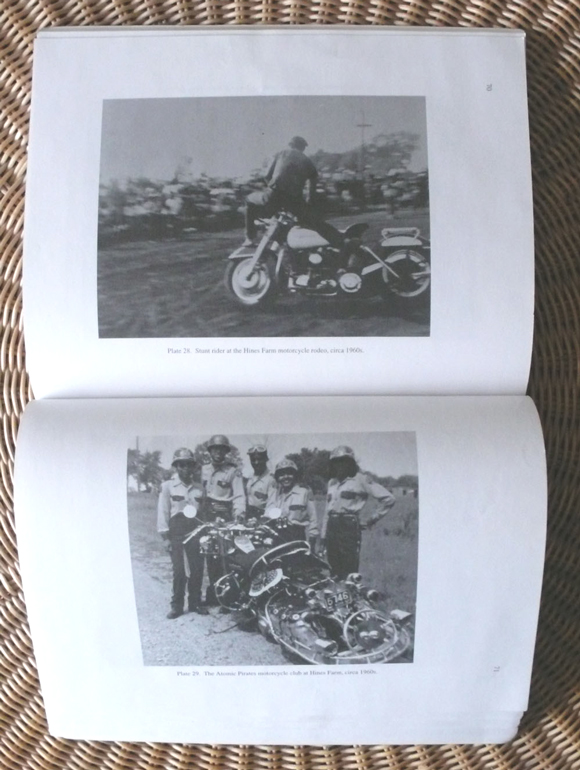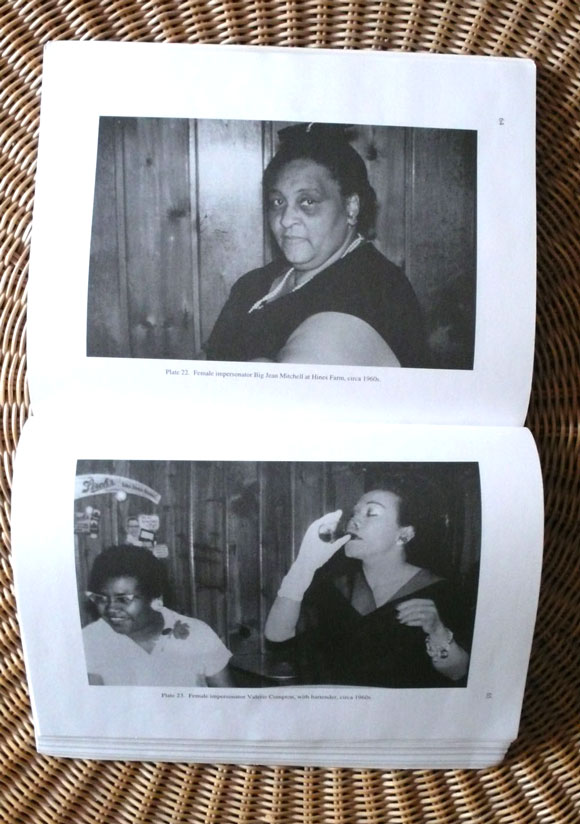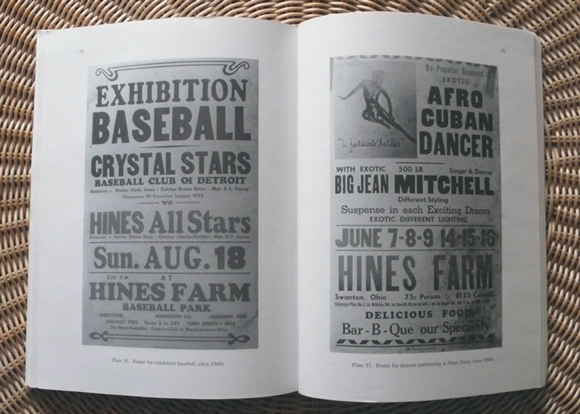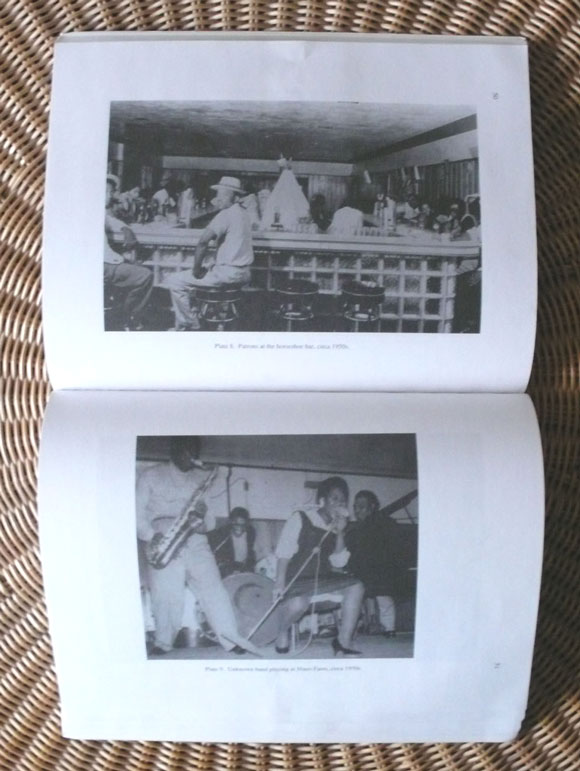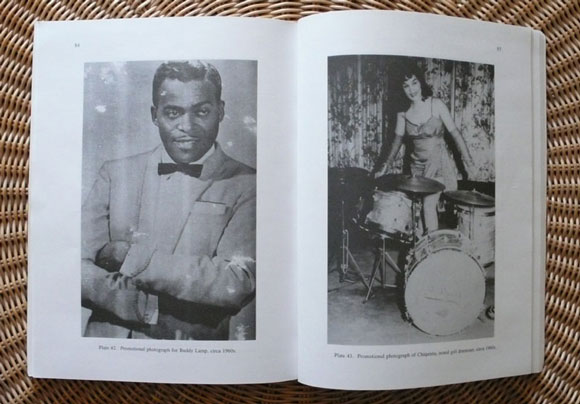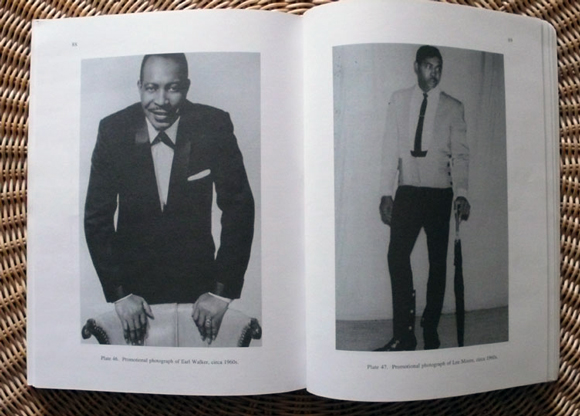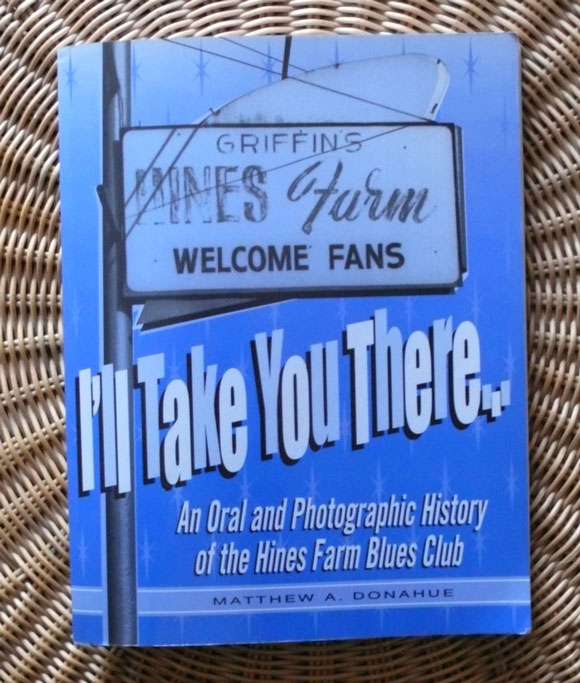Books: I’ll Take You There
A chat with photographer/Men’s File publisher Nick Clements at the opening of his show Revival – which looks at the re-enactment of the styles surrounding American bike culture of the 50s for his Royal College Of Art research project – put me in mind of original black motorcycle clubs the Atomic Angels and the Gypsy Pirates.
I first came across them a decade or so ago when covering another academic study, Matthew Donahue’s I’ll Take You There, for Mojo magazine. Donahue’s book focused on a true cultural phenomenon: Hines Farm in Swanton, Ohio, whose owners Frank and Sarah Hines were the first African-Americans in the region to be granted a liquor licence.
Their juke-joint attracted blues, jazz and r&b stars and performers including the black female impersonators Valerie Compton and Big Jean Mitchell, local radio DJ Lady B. Belcher, a shaven-headed singer who called herself “Jyul Brynner” and “noted girl drummer” Chiquieta, while weekend-long barbecues featured all African-American baseball tournaments and bike displays by the great-looking Pirates and Angels.
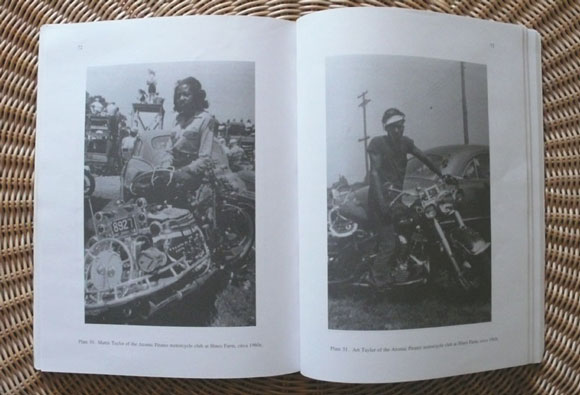
//Left: Mattie Taylor of The Atomic Pirates. Right: Her husband Art Taylor, frontman of The Houserockers.//
Donahue produced a PBS documentary and Hines Farm is going again, but, save one soul forum mention, I can find no online trace of the bike clubs nor Compton, Belcher, Brynner, Chiquieta or many of the other entertainers – including Afro Cuban dancer “Le Fantaisiste Antillais” and The Allen Love Revue Featuring Allen Love And The Lovettes – who once populated this singular pleasure palace.
*****
HOLY TOLEDO! (Mojo May 2000)
Midnight movers, Ohio players, Gypsy Angels and Atomic Pirates gathered at the Hines Farm juke joint. Paul Gorman pays a visit.
According to the rarely-seen photographs in Matthew Donahue’s I’ll Take You There, the place to be in the 60s was way off the beaten track, at the juke joint at Hines Farm, an hour’s drive south of Detroit and 20 miles west of Toledo, in Swanton OH.
Opened in 1957 by the redoubtable Frank and Sarah Hines, Hines Farm attracted the prime acts on what remained of the chitlin circuit.
John Lee Hooker recalls it with some enthusiasm: “Oh they had good barbecue!” he says. “Even if I wasn’t playing there I’d go up from Detroit, have a good time. We called it ‘just having a party’.”
Hines also hooked Jimmy Reed, Count Basie and Little Esther Phillips, who played the place in 1964, when, back from years of drug misery, she scored a country hit with Release Me.
“Music was the key to Hines Farm,” says Donahue. “They got the best national stars and brought people together.”
The splendid horseshoe bar also rocked to local artists Art & Roman Griswald and The Houserockers, and a regular booking was female impersonator Valerie Compton (whose act utilised a 200lb boa constrictor).
Ohio’s prevailing racial tensions were put aside at Hines Farm.
“If there was a stir, Sarah Hines wasn’t averse to restoring order,” says regular Tillman Cowan, who recalls a night in the 50s when a local “started all kinds of filthy talk. Sarah took a beer bottle and hit the son of a bitch on top of his head”.
Sarah and Frank were the first African-Americans in the region to hold a liquor licence, and organised sporting events on the farm, including the high grade baseball tournaments featuring The Hines All Stars.
The highlight of the calendar was Motorcycle Sunday, when local bike chapters The Atomic Pirates and The Gypsy Angels would impress the crowds with acts of derring-do after a weekend-long bout of jollification which started with a Friday Night hog roast.
Formed in 1953 by Art and Mattie Taylor, the Atomic Pirates rode highly decorated Harleys in the competitions which featured up to 15 teams.
“We were the oldest black motorcycle club in the area,” says Mattie Taylor, now a care worker in a local old people’s home. “We’d hold about five events a year and a lot of people would come, three to four hundred, just to have a good time.”
Art Taylor (also frontman of The Houserockers) ran one of the best-dressed bikes in the area, with 32 lights on the back (“what they call a porch”, according to Mattie).
“Competing in motorcycle events was very much the fashion in rural communities in the mid-50s,” says Matthew Donahue. “People would flock from as far afield as Georgia, Alabama, Mississippi, just for the fun of it.”
Hines Farm closed in the late 60s; Frank and Sarah retired as urban renewal swept the heart of America, breaking up communities and altering ways of life.
Yet the building survived and was purchased in 1978 by local Henry Griffin, who has spent many years refurbishing the establishment.
Once a year or so, Griffin still throws a wing-ding of titanic proportions down on the farm, complete with live music, barbecue cooking and maximum amounts of Strohs in the chiller.
“It’s great it’s owned by a local dude, not some yuppie,” says Donahue. “Hines Farm stands as a testament to how music brings people together.”
*****

